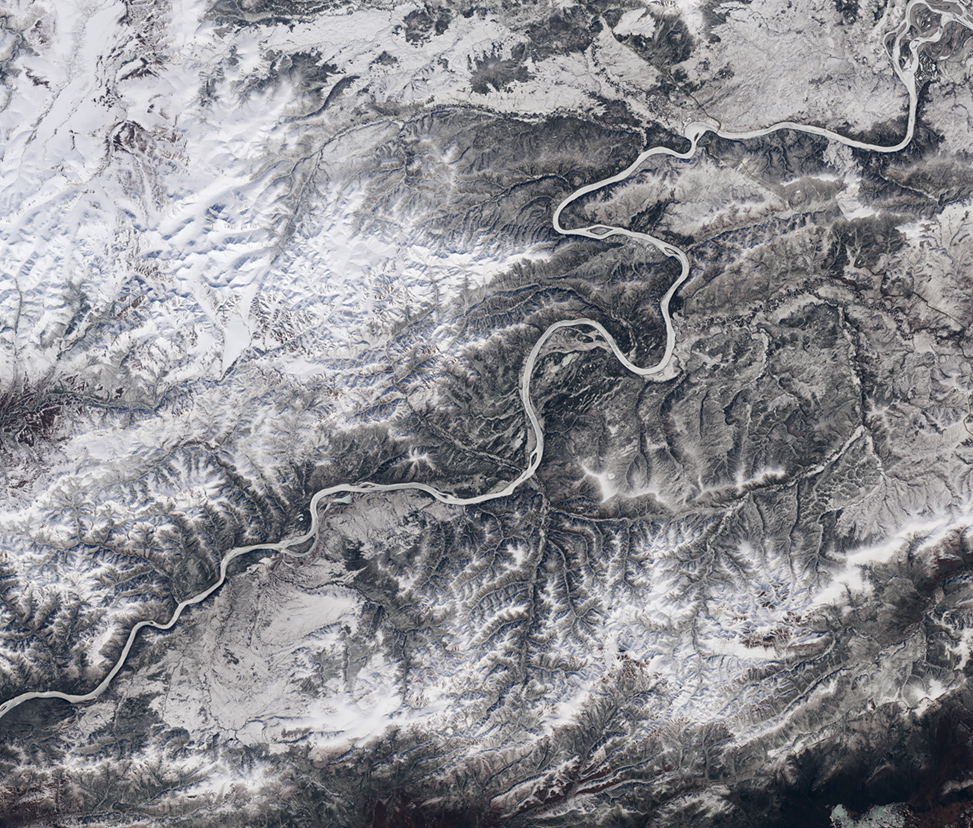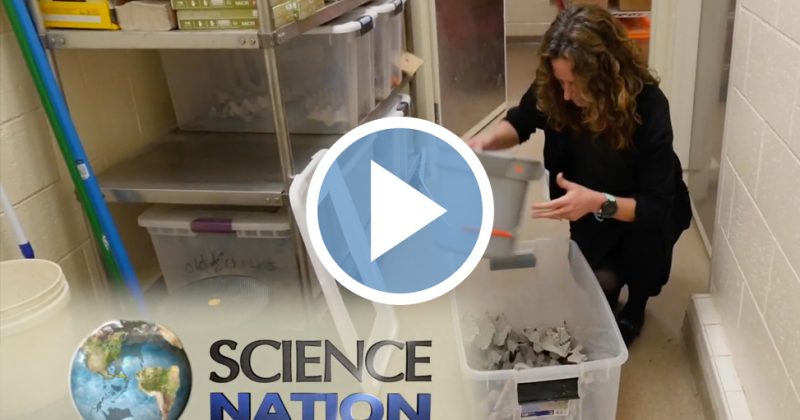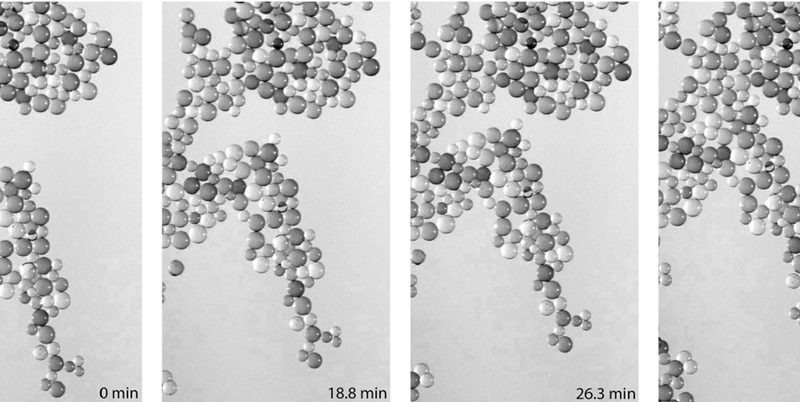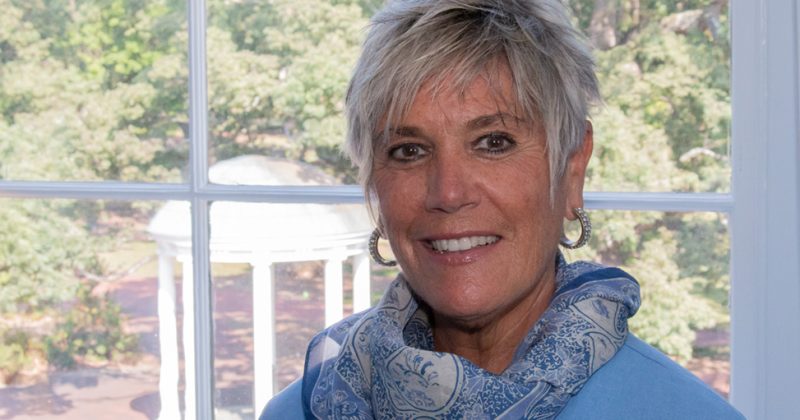
A satellite photo shows ice cover on the Yukon River as it approaches its confluence with the Tanana River in Alaska.
More than half of Earth’s rivers freeze over every year. These frozen rivers support important transportation networks for communities and industries located at high latitudes. Ice cover also regulates the amount of greenhouse gasses released from rivers into Earth’s atmosphere.
A new study from UNC-Chapel Hill researchers found that annual river ice cover will decline by about six days for every one degree Celsius increase in global temperatures. This decline will have economic and environmental consequences.
“We used more than 400,000 satellite images taken over 34 years to measure which rivers seasonally freeze over worldwide, which is about 56% of all large rivers,” said Xiao Yang, a postdoctoral scholar in the geological sciences department and lead author on the paper. “We detected widespread declines in monthly river ice coverage. And the predicted trend of future ice loss is likely to lead to economic challenges for people and industries along these rivers.”
The team also looked at changes to river ice cover in the past and modeled predicted changes for the future. Comparing river ice cover from 2008–2018 and 1984–1994, the greatest declines were found in the Tibetan Plateau, eastern Europe and Alaska.
For the future, the team compared expected river ice cover through 2009-2029 and 2080-2100. The Rocky Mountains, northeastern United States, eastern Europe and Tibetan Plateau are expected to take the heaviest impact.
“Ultimately, what this study shows is the power of combining massive amounts of satellite imagery with climate models to help better project how our planet will change,” said associate professor of global hydrology Tamlin Pavelsky.
George Allen, assistant professor of geography at Texas A&M University, also worked on the study.
Published in the Spring 2020 issue | The Scoop
Read More

Tiny toad offers big potential for research on plasticity
The National Science Foundation features research by Karin and David…

Discovering a new fundamental underwater force
A team of mathematicians from UNC-Chapel Hill and Brown University…


